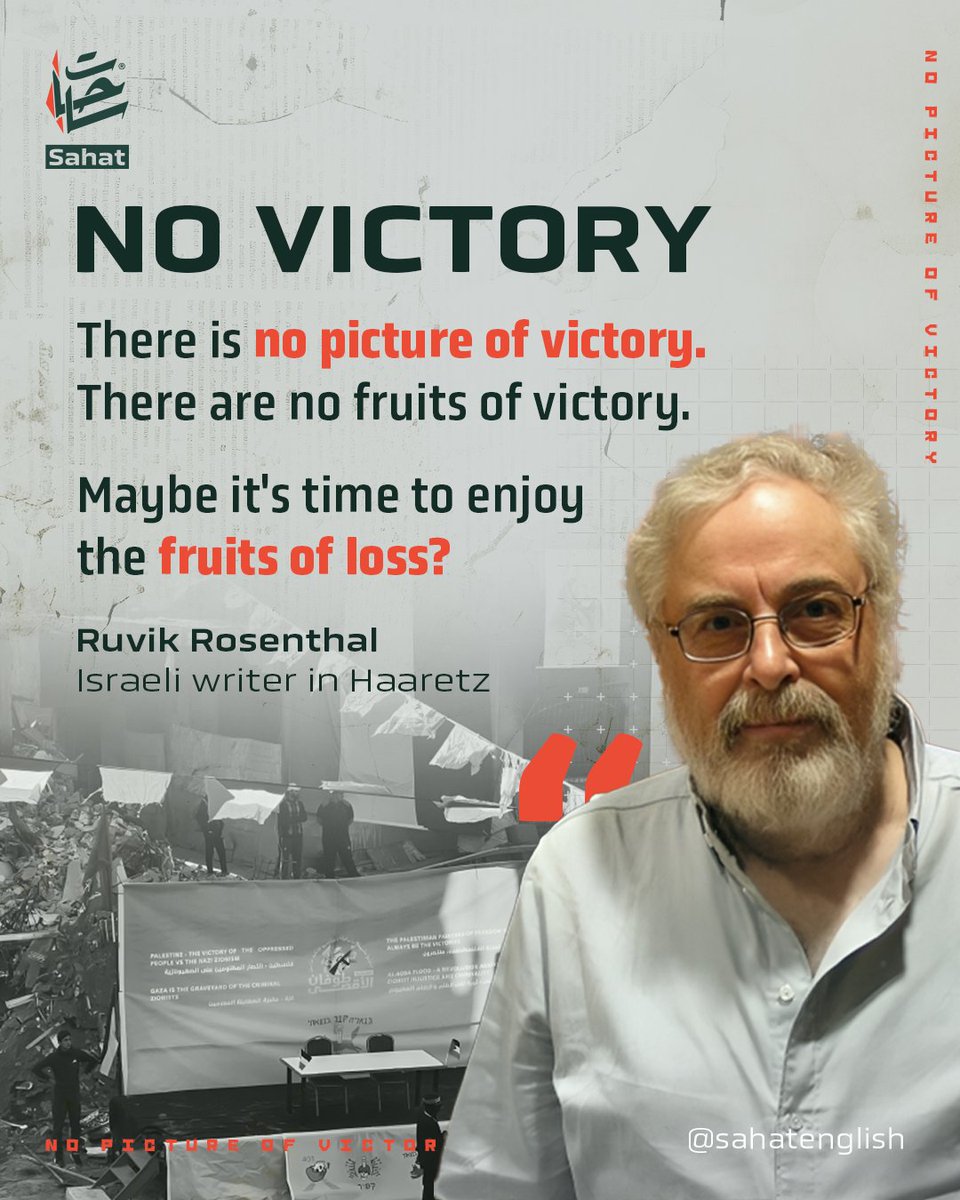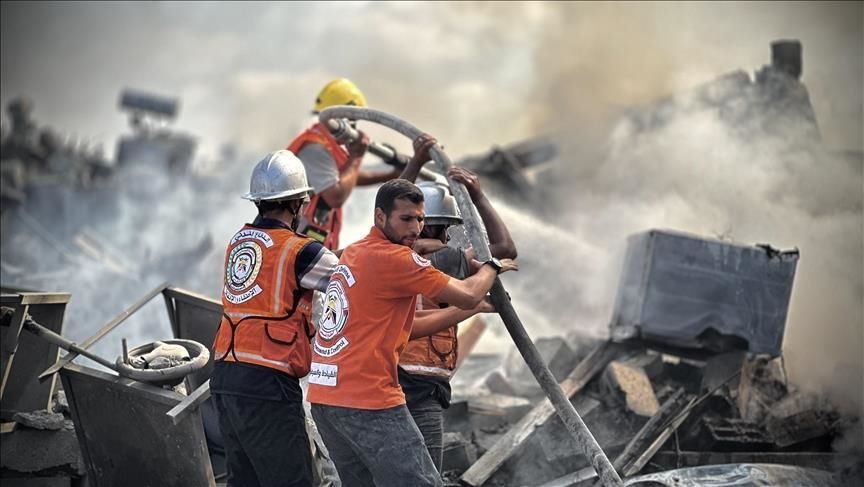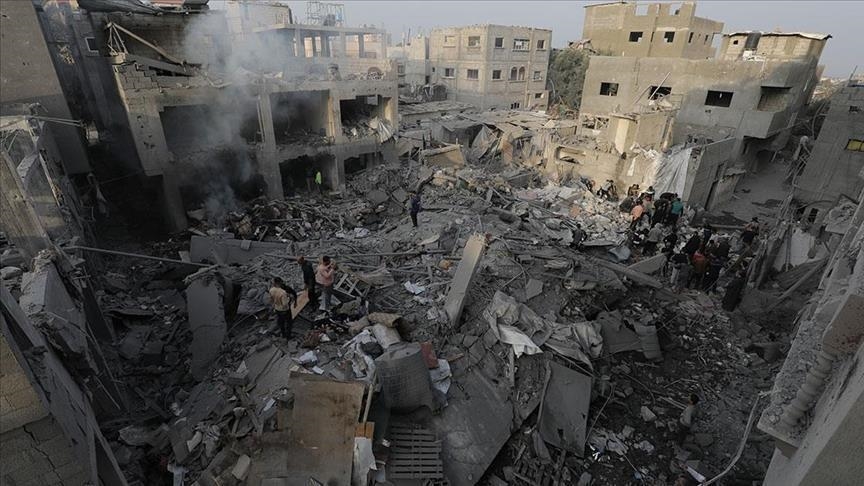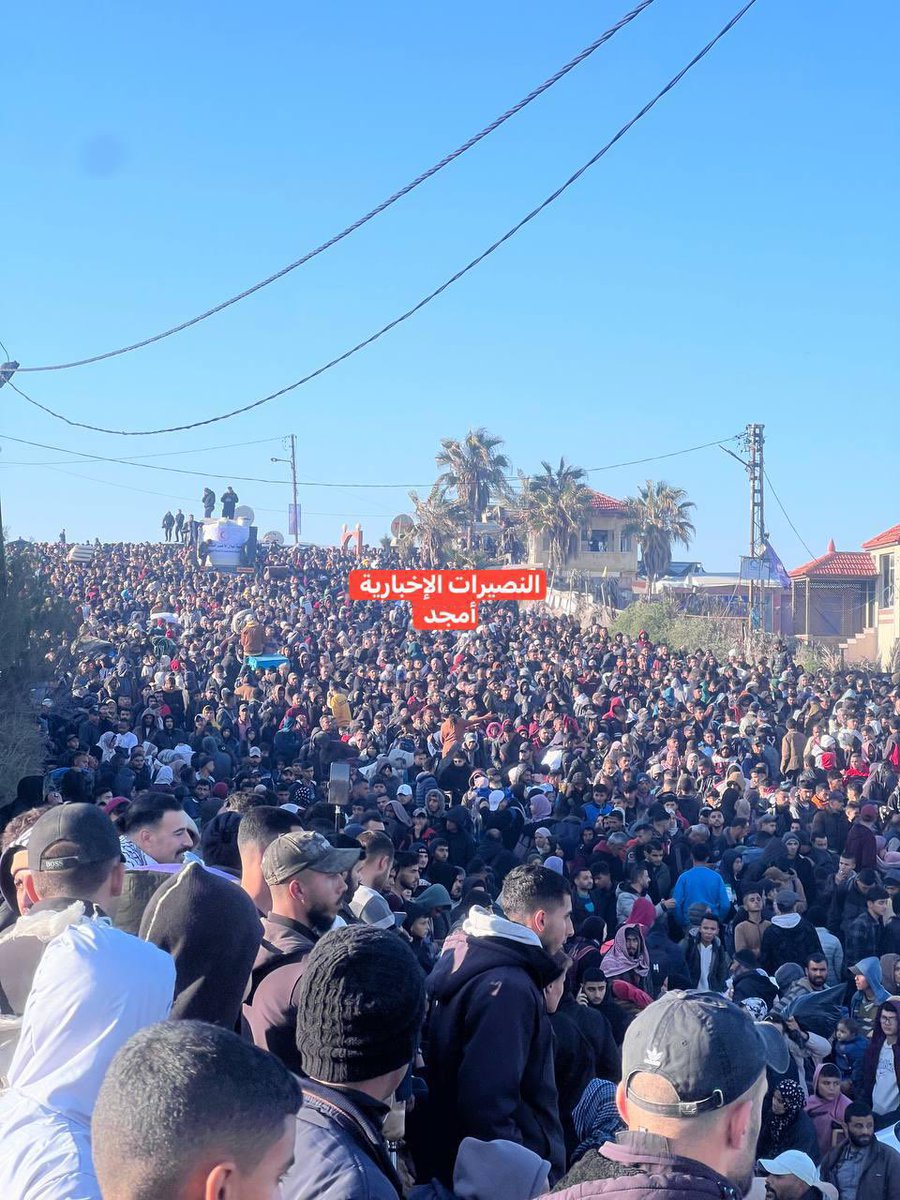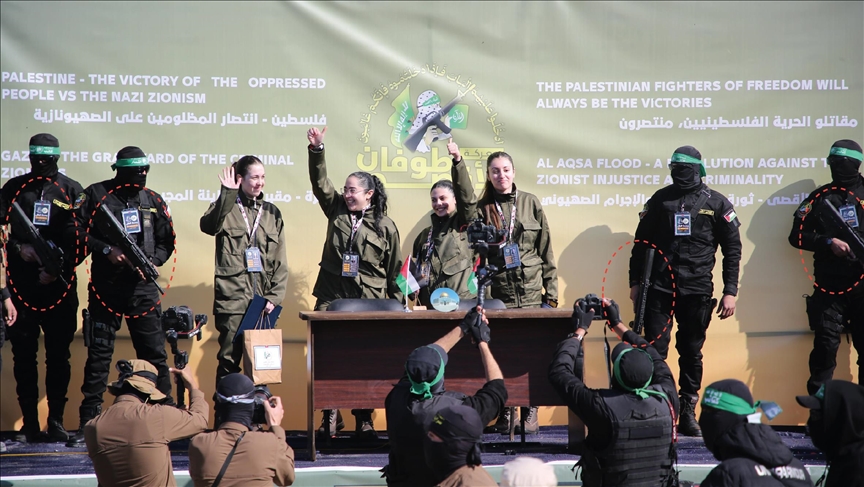United States President Donald Trump announced his plan to expel the Palestinians in the Gaza Strip from their homes there, and has called on neighbouring nations to accept the Palestinians into their countries. These remarks, which were made after Israel egregiously violated international law by committing genocide against the Palestinian people in the Strip for over 15 months—including by destroying all essential necessities for life in the enclave—are deeply concerning.
The Palestinians, who are already suffering from the devastating effects of Israel’s attempts to annihilate them, should not have to pay a further price for this genocide by being forcibly displaced outside of their homeland. Israel, as the occupying power, is the only entity that must take moral and legal responsibility for the crimes it has committed in the Gaza Strip, pay reparations to the Palestinians, and rebuild the Strip as quickly as possible.
Since the Fourth Geneva Convention expressly forbids the forced displacement of populations under occupation, any plans to do so would be a blatant violation of this agreement. The facilitation of these plans would also violate the Palestinian people’s inalienable right to stay on their land and in their homeland, a right which is protected by international law, and would be crimes against humanity and war crimes. In addition to being an international crime, the forced displacement of Palestinians is a component of a larger plan to strengthen the systematic expulsion and forced relocation crimes Israel has been committing against Palestinians for many years.
In addition to directly supporting Israel’s expansionist and colonial policies, which systematically aim to remove Palestinians from their lands in favour of its illegal colonial settlement projects, Trump’s statements call for the evacuation of Gaza’s population by forcing neighbouring countries to absorb refugees from the Strip. This runs counter to the strong historical and cultural ties that bind Palestinians to their land.
For months, Israel has been committing genocide by carrying out mass killings against civilians and methodically demolishing Gaza Strip cities, neighbourhoods, and infrastructure in an effort to drive Palestinians from their land and force them to flee. In order to weaken the Palestinians’ ability to survive on their land, and to establish a coercive environment that forces them to flee, these policies have gone beyond simply killing, destroying, and starving them. They have also included destroying the essentials of life, such as access to water, electricity, education, and health care.
Trump stated today (26 Sunday) that more Palestinians from the Gaza Strip should be sent to Jordan and Egypt, and that he is pleading with the leaders of the two nations to allow them to do so because the Strip is “in a state of chaos”.
Since the reopening of the Rafah land crossing with Egypt, which was closed last May, Israel has purposefully bombed cities, residential neighbourhoods, and infrastructure in the Gaza Strip, including streets, schools, and essential facilities there. Israel’s deliberate attempt to either kill or drive Palestinians from their land is especially obvious given the dearth of basic necessities in the besieged enclave, such as homes and infrastructure like water, electricity, communications, Internet, and school networks. In addition, statements made by Israeli ministers and officials publicly promote voluntary migration.
Israel has been committing genocide in the Gaza Strip since 7 October 2023, and the destruction of entire Palestinian cities and neighbourhoods by the Israeli army is a glaring example of this crime and a key instrument of its execution.
This crime has gone beyond simply killing 10s of thousands—or potentially hundreds of thousands—of Palestinians and progressively destroying the lives of over two million people by removing their basic necessities for survival. It has also included the total destruction of Palestinian cities and their architectural and cultural heritage; the erasure of the Palestinian people’s national and cultural identity; the forced relocation of Palestinian people from their lands, and the imposition of this permanent displacement; the dismantling of their communities; and the obliteration of their collective memory in an attempt to eradicate their physical and human existence as well as their past, present, and future.
A regional and global stance opposing Trump’s claims of deporting Gaza Strip residents is absolutely necessary. Mass displacement as a solution to the current conflict not only ignores the underlying causes of the issue but also exacerbates the injustices already experienced by the Palestinian people, and denies them their rightful self-determination and safe residence in their homeland. Trump’s claims, along with any actions that follow, are likely to exacerbate tensions and undermine regional stability.
The international community must fully uphold the principles of international law and adopt solutions that respect Palestinian rights. These solutions should include ending Israel’s illegal occupation of Palestinian territories, holding Israel accountable for its ongoing crimes, and establishing a clear path to achieving justice for the Palestinian people. Additionally, the international community should ensure that all Palestinian refugees and displaced persons are able to return to their original areas in accordance with relevant international resolutions, rather than supporting any policies that would uproot Palestine’s indigenous population in favour of Israel’s colonial policies.
Euro-Med Human Rights Monitor

